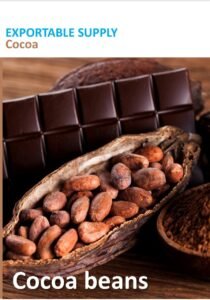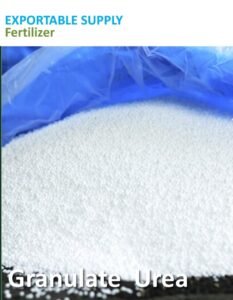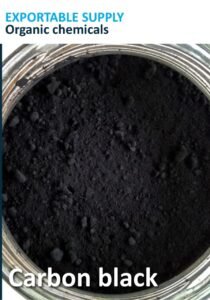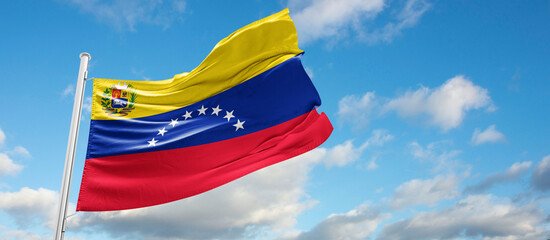





Venezuela offer many opportunities to international trade, both for the export of goods and services, and for the development of productive activities, where the climate, vegetation, natural resources and minerals, as well as a thriving and diverse industrial park, are available for those investors and entrepreneurs with a highly productive vocation who are looking for favourable markets for investment and production.
Counting with 916,445 km² of multipurpose fertile lands and island territories, Venezuela is a country of great potential for primary production (food, mining, oil), and transformative (assembly companies, chemical, technological, textile, plastic, automotive, tourism, among others).
From the perspective of commercial geostrategy, the Bolivarian Republic of Venezuela, blessed with natural wealth, minerals and a privileged location, represents the gateway to the American continent, offering international trade a robust logistics infrastructure that allows connectivity for the transit of goods by air, land and sea, from the world to the regional markets of the Caribbean Sea, as well as Central, South and North America.
Likewise, this unparalleled location and complex infrastructure also makes the Bolivarian Republic of Venezuela a very profitable strategic enclave for Foreign Direct Investment, by facilitating the positioning of its products both within the territory and in foreign markets.
In terms of trade and investment, Venezuela has great potential in the oil and gas, aluminium and steel, wood, petrochemical and agricultural products sectors, among many others. I will quickly show you our exportable product, namely: fish and seafood such as croaker, red snapper, shrimp, crab; legumes such as green mung beans; cereals, seeds and spices such as sesame; cocoa beans, cocoa butter, cocoa liquor, chocolate bars, green coffee beans. In fertilizers we have granulated urea; in chemical products we have methanol and propanil; large coal reserves; pine wood, saman wood, teak; iron or steel and articles thereof such as steel billets; aluminium.
Venezuela has great economic and commercial potential, with valuable natural and energy resources, among which its proven oil reserves that exceed 300 billion barrels of crude oil stand out; natural gas with 201,593 million cubic feet; mining area with 110 thousand km², representing 3% of the world’s supply, including the second biggest gold mine, and certified deposits of more than 40 strategic minerals: coltan, coal, manganese, iron (eighth world reserve), copper, bauxite, magnesite, chrome, diamond, granite, phosphate, limestone, feldspar, gypsum, kaolin, petcoke, among others.
Venezuela has the ninth world reserve of fresh water (1,320 km³), and one of the largest hydroelectric systems in the world, the Simón Bolívar Hydroelectric Complex, with an installed generation capacity of more than 10,000 MW, ideal for the establishment of companies and industrial developments allowing them to operate with natural, economical and non-polluting energy, not dependent on carbon.
Among its greater productive wealth there are more than 30 million arable hectares, 17 million for livestock production, the world’s largest planted forest (250 thousand hectares), 300 thousand hectares suitable to sow bamboo, and thousands of plant species between tropical, rainy and dry forests, shrublands, grasslands and mangroves, thanks to its multiple habitats, including jungle, mountains, plains and Caribbean coast.
Venezuela is an interesting and attractive destiny for recreation, innovation, development and global productive chain. Its coastal location gives easy access to multimodal transport of products and commodities; being a strategic Latin America and Caribbean market. The port of La Guaira is a strategic enclave for connections to the Caribbean, Central and South America, Europe, Asia and Oceania.
In the same way, it has tariff and commercial preferences that favour exports to markets of great commercial activity, lowering import costs, with the ‘Single Window on Trade System’.
Both the Government and the private sector of Venezuela have the focus on the same objective: that of promoting international investment and increasing non-oil exports, for which they promote meetings with their foreign peers in order to offer opportunities in the country and products for foreign markets. The big bet is to promote “Special Economic Zones” – delimited areas which offer tax incentives – where they have invited countries, including the ones from BRICS, to invest in different sectors.
Venezuela is a country that is emerging with vast opportunities for growing in the coming years. In October 2020, was created the International Centre for Productive Investment (CIIP), as an institution responsible for attracting and promoting national and international investment, with the aim of energizing the productive apparatus for the economic and social development of the country.
The government continues promoting the creation of a commercial and productive integration route worldwide, with the aim of expanding the international markets to which Venezuelan production reaches. After that, it has been strengthening commercial ties and promoting business roundtables with other nations, building bridges to benefit the economies of the parties.
Active in the international dynamics of multilateral, regional and integration organizations, Venezuela has a wide map of trade agreements with Central America, the Caribbean, South America and the rest of the world, including a wide network of Agreements to avoid Double Taxation concluded in matters of income tax, international transportation, as well as agreements signed on the protection and promotion of investments.
In relation to the corporate structure, investment modalities and operations that can be considered by national and foreign investors, commercial legislation provides various commercial forms that can be evaluated for the purposes of structuring, capital raising and expansion of operations depending on the particularities of the business or project. In addition, there are different forms of business organization in Venezuela, such as:
- SMEs (Small and Medium Enterprises)
- Sole Proprietorship
- Public Company (C.A.)
- Public Limited Company (S.A.)
- Limited Liability Company (S.R.L.)
- Authorized Capital Limited Company (S.A.C.A.)
- Registered Public Limited Company with Open Capital (S.A.I.C.A.)
In summary, Venezuela, as President Nicolás Maduro has emphasized, is open to the future and has the firm willingness to work along with the brotherhood government of India to strengthen and diversify economic and commercial relations that result in the well-being of both peoples.
To carry out actions in the proposed direction, it is necessary to formalize instruments that allow us to have a clear roadmap for cooperation. It is also necessary to build a new financial architecture that is not an obstacle to trade, but, on the contrary, facilitates and promotes it. The Development Bank of Latin America and the Caribbean (CAF) could create feasible alternatives through cooperation with India or with the BRICS bank, and thus promote trade.
As it was indicated previously, Venezuela will continue to propose moving forward in the signing of trade agreements, investment protection treaties that define a favourable legal framework and promote investment; as well as the organization of roundtable platforms for business meetings and business conferences.
All of the above is a sample of the export-oriented Venezuelan production potential, with its own natural resources, structural elements and geographical advantages that allow a harmonious development, taking advantage of the highly qualified human talent that highlights Venezuela in a significant way among the countries of the region.
Venezuela is a God’s Masterpiece!!!


